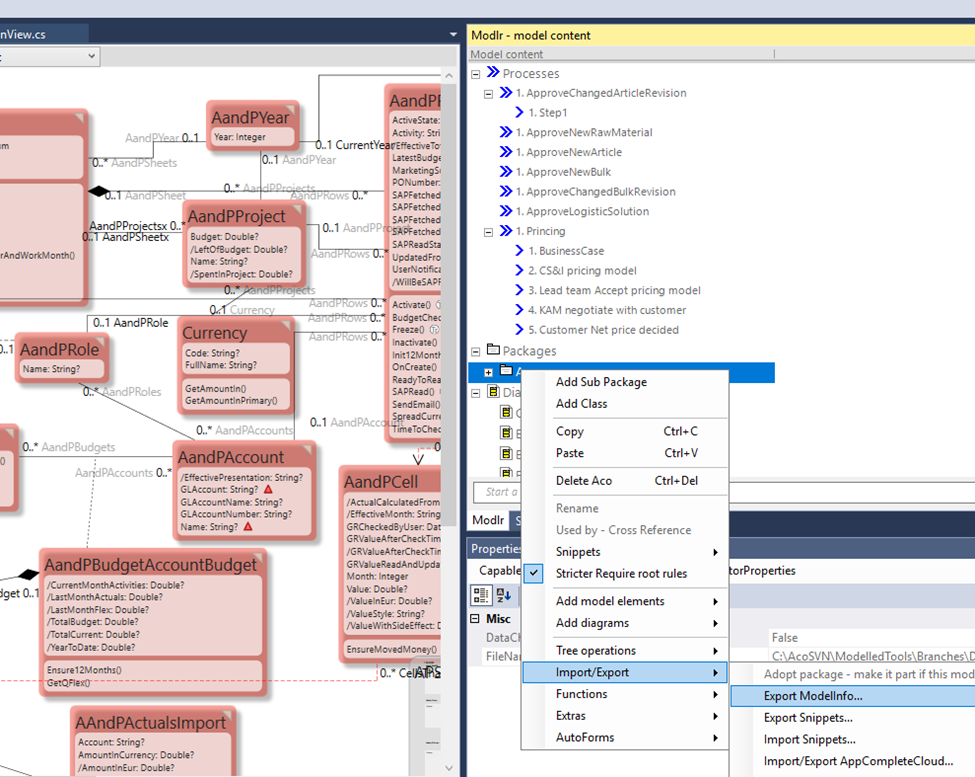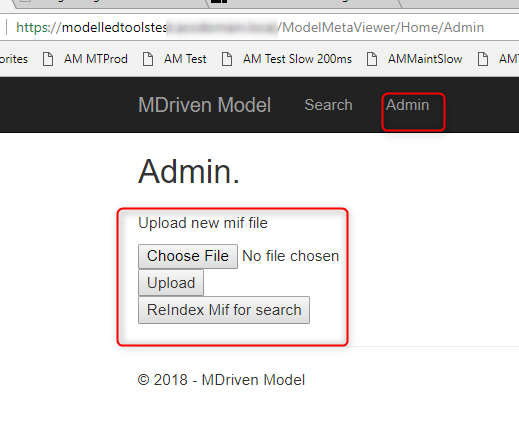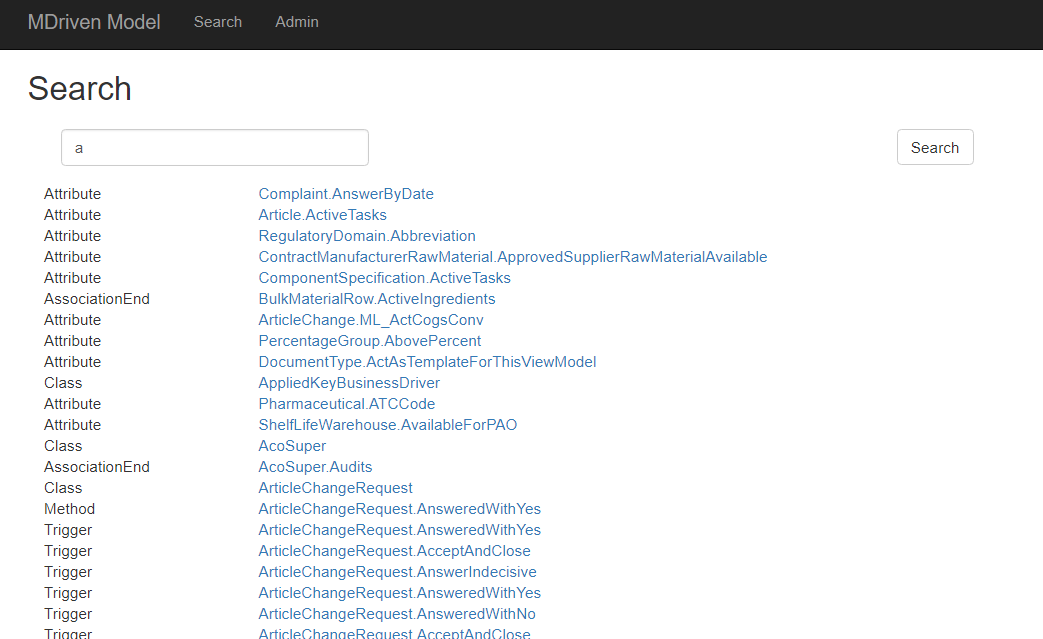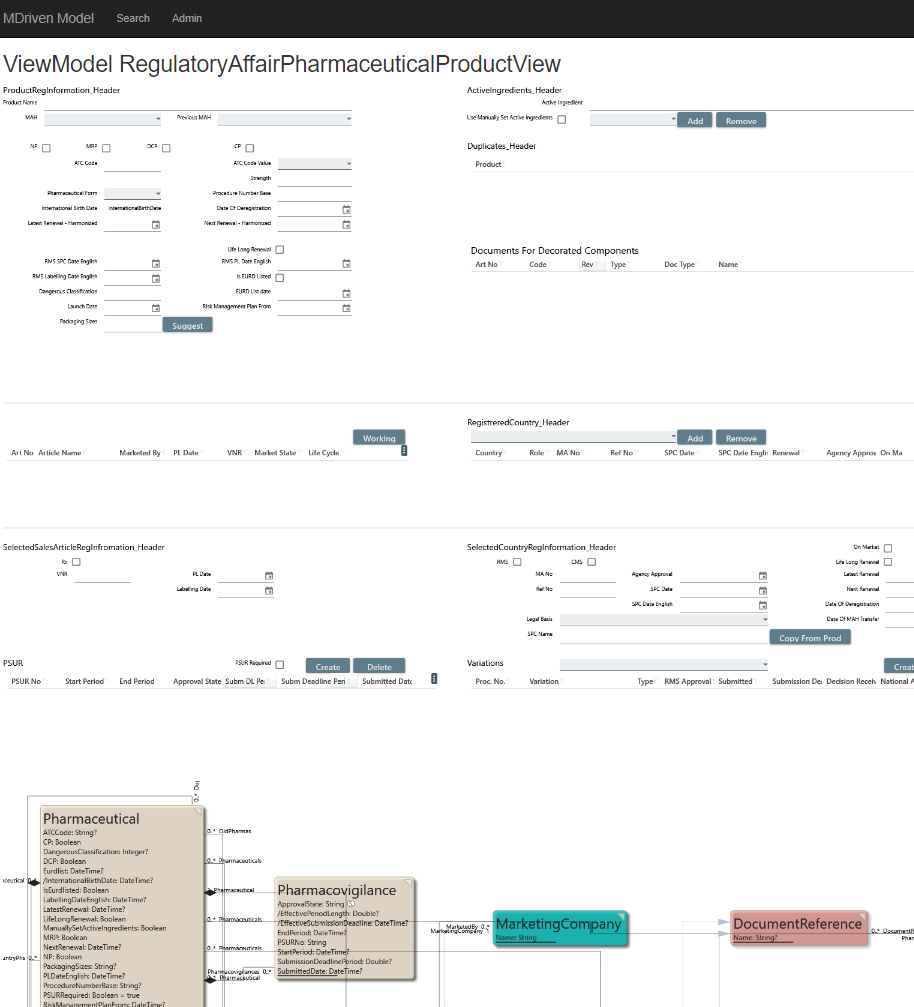No edit summary |
m ((username removed) (log details removed): Moving to BestPractices namespace) |
||
| (2 intermediate revisions by one other user not shown) | |||
| Line 1: | Line 1: | ||
As your model grows you will find that it is a good tool to actually understand the business it supports. | As your model grows, you will find that it is a good tool to actually understand the business it supports. As many people in the organisation would benefit from this understanding, it is great to publish a read-only version of the model for everyone to see. | ||
Start by exporting a mif (Model Information File) file: | Start by exporting a mif (Model Information File) file: | ||
[[File:2018-08-23 15h17 30.png|none|thumb|975x975px]] | [[File:2018-08-23 15h17 30.png|none|thumb|975x975px]] | ||
This format takes the ViewModels, The Actions, The Classes and their content, and The StateMachines and saves | This format takes the ViewModels, The Actions, The Classes, and their content, and The StateMachines and saves them in a new type of ModelMeta model. It also analyzes each expression and makes notes on what each expression makes use of. This way the ModelMeta is a good cross-reference on what is used where. | ||
The mif file can then be uploaded to a ModelMetaViewer. I created a ModelMetaViewer in WPF but soon found that the real benefits come when you can consume the meta info from the web instead of from a separate application. I then created the ModelMetaViewer as an MnVC web | The mif file can then be uploaded to a ModelMetaViewer. I created a ModelMetaViewer in WPF but soon found that the real benefits come when you can consume the meta info from the web instead of from a separate application. I then created the ModelMetaViewer as an MnVC web application. | ||
Find the Web-install-package here: https://www.mdriven.net/publicDownloads/ModelMetaViewerMVC4.zip | |||
Once you have it installed | Once you have it installed, go to the admin tab and upload your mif file. Then, index the uploaded file: | ||
[[File:2018-08-23 15h28 13.png|none|thumb|519x519px]] | [[File:2018-08-23 15h28 13.png|none|thumb|519x519px]] | ||
Now you can search (we use a Lucene.Net.dll to index names + code comments) | Now you can search (we use a Lucene.Net.dll to index names + code comments). | ||
[[File:2018-08-23 15h31 28.png|none|thumb|1043x1043px]] | [[File:2018-08-23 15h31 28.png|none|thumb|1043x1043px]] | ||
Following a link to a ViewModel, you get view + information usage: | |||
[[File:2018-08-23 15h33 58.png|alt=x|none|thumb|1007x1007px]] | [[File:2018-08-23 15h33 58.png|alt=x|none|thumb|1007x1007px]] | ||
The images have image maps and the user can follow to a single attribute or association end and see where else this is used and how to get there. As you can imagine this detailed self-organized meta information can reduce the support you need to provide for people that | The images have image maps and the user can follow to a single attribute or association end and see where else this is used and how to get there. As you can imagine, this detailed self-organized meta information can reduce the support you need to provide for people that try to navigate the system without the benefit of the model. | ||
[[Category:Model]] | |||
Latest revision as of 21:34, 20 December 2023
As your model grows, you will find that it is a good tool to actually understand the business it supports. As many people in the organisation would benefit from this understanding, it is great to publish a read-only version of the model for everyone to see.
Start by exporting a mif (Model Information File) file:
This format takes the ViewModels, The Actions, The Classes, and their content, and The StateMachines and saves them in a new type of ModelMeta model. It also analyzes each expression and makes notes on what each expression makes use of. This way the ModelMeta is a good cross-reference on what is used where.
The mif file can then be uploaded to a ModelMetaViewer. I created a ModelMetaViewer in WPF but soon found that the real benefits come when you can consume the meta info from the web instead of from a separate application. I then created the ModelMetaViewer as an MnVC web application.
Find the Web-install-package here: https://www.mdriven.net/publicDownloads/ModelMetaViewerMVC4.zip
Once you have it installed, go to the admin tab and upload your mif file. Then, index the uploaded file:
Now you can search (we use a Lucene.Net.dll to index names + code comments).
Following a link to a ViewModel, you get view + information usage:
The images have image maps and the user can follow to a single attribute or association end and see where else this is used and how to get there. As you can imagine, this detailed self-organized meta information can reduce the support you need to provide for people that try to navigate the system without the benefit of the model.




